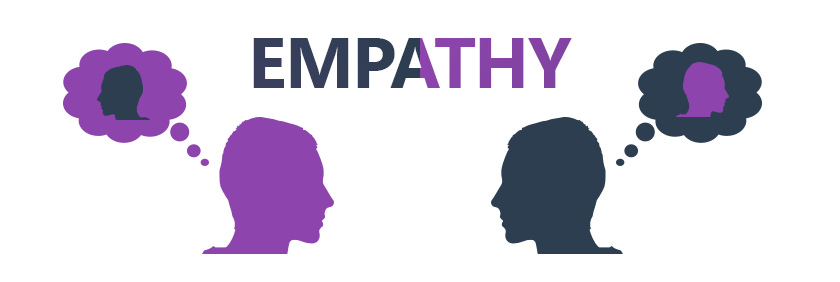Empathy is a give and takes a process. Most of us can admit we need more empathy and acceptance from others, especially if we have healing to do on many levels. But the truth is, that if we are undernourished in our own emotional lives, overstressed and feeling like a victim to circumstances, we have difficulty offering real empathy to others.
We have to remember that when we have been in a long term state of psychological or physical trauma, the first step to healing is to listen to ourselves deep inside. Sometimes this means enough solitude to do self-reflection in the heart, in our bodies, and really listen. Really feel. And this can be scary and uncomfortable.
What often happens in long term trauma is a tendency to “shut down” and repress one’s true feelings so habitually that the focus is usually on external things, physical health, defenses and addictions, other people or circumstances–often in a negative fashion. Such as constant drama, relationship problems, unhappiness with the job, the family, the government, anything, and everything that takes the focus off of one’s real feelings related to deeply personal emotional wounding. This can manifest itself as the victimization process that repeats itself so much, that the lines get blurred on how and why the trauma keeps happening.
It is necessary to pause long enough to calm the mind, the body, and the emotions, so that we can really do some self-reflection on what is truly happening inside, not outside ourselves. It starts with the INTENTION of taking personal responsibility for healing on whatever level necessary for your own situation and life. This is how we take our power back.
Once we are able to really be present with what we are feeling in the moment from experience to experience, we are more able to be fully present for others empathically, resulting in deeper, authentic connectedness in relationships.
In this article by Marshal Rosenberg entitled, “Sustaining Empathy”
http://www.listeningway.com/marshall-empathy1.html
(which is a chapter of his book on Non-Violent Communication), Rosenberg describes typical reactive responses that people often make to those who are in pain—offering judgments or quick solutions and fix-it answers. In compassionate communication, the four pillars of this process are Observations, Feelings, Needs, and Requests. Even though a significant part of Compassionate Communication is “Requests”, the listener of this empathic process really needs to focus more on the empathic process of the feelings and needs a portion of self-discovery.
Just being able to recognize our true feelings and needs in any given moment or experience is necessary for our true insight within to guide our own process of healing. Such taking responsibility in feeling and self-awareness is necessary before we can truly change our circumstances in life.
At some point in the process of personal growth, we come to realize that we can only be truly empathically present with others to the degree that we are in touch with ourselves. Personal growth is a process that takes time and maturity and has been described by psychotherapist Carl Rogers to occur in stages. He called these the Seven Stages of Process which lead to deeper self-connection. This process itself is solely based on receiving and giving empathy.
http://www.listeningway.com/gpc-gpr-connections.html
The process of a deeper connection to our authentic “self” eventually leads to a more continuous, receptive way of being. There becomes a freer flow of energy and a dynamic, fluidic way of being that allows greater freedom of giving and receiving love.
